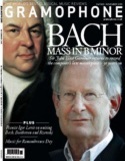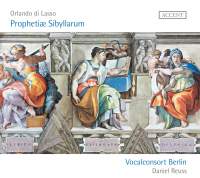Texte paru dans: / Appeared in: |
|
|
Outil de traduction (Très approximatif) |
|
|
Reviewer:
Fabrice Fitch Of Lassus’s largerscale cycles, the Prophetiae sybillarum is among the trickier ones to bring off. It sits in a limbo between sacred and secular that can be so perplexing to modern-day sensibilities. The Latin texts are concerned with the sacred, but only indirectly, and Lassus’s famous use of chromaticism (nowhere more so than in the opening bars, constantly trotted out in historical surveys) is probably meant to suggest their semi-mythical provenance. Although the Prophetiae now boasts a sizeable discography, this hybrid status may explain why no one recording has managed it entirely convincingly.
Vocalconsort
Berlin’s approach is most comparable to The Brabant Ensemble’s for Hyperion,
though the deeper acoustic imparts a ‘bigger’ sound. From a choral and technical
perspective they may well offer the most rounded and vocally satisfying of the
available alternatives. Both here and in the motets that complete the recital,
Daniel Reuss’s direction tends towards smooth lines and seamless transitions, an
approach that obviously corresponds to the ensemble’s sound but does little to
bring out the essential strangeness of the Prophetiae. It’s not just a matter of
those chromatic turns: there are sudden leaps, shifts of register, wide gaps in
the texture (especially below the top voice) and the obsessive repetition of
certain words. Likewise, the frequent syllabic word-setting is highly suggestive
of declamation, whereas the general dynamic never rises above mezzo-forte.
Perhaps the deliberately subdued tone is meant to impart a dreamlike quality,
but to my mind it misses the rhetorical edge that Lassus’s bold gestures seem
calculated to convey. As an introduction to a sybilline, not to say sphinx-like
work, this may be the best we’ve got, but the search for a fully realised
interpretation goes on. The accompanying motets are a rather piecemeal selection
where several rival recordings of the Prophetiae offer something more
substantial for their ‘B‑sides’. At under 50 minutes, it’s also a thin serving
of repertoire that’s not in copyright.
|
|
|
|
|
|
Cliquez l'un ou l'autre
bouton pour découvrir bien d'autres critiques de CD |
|




